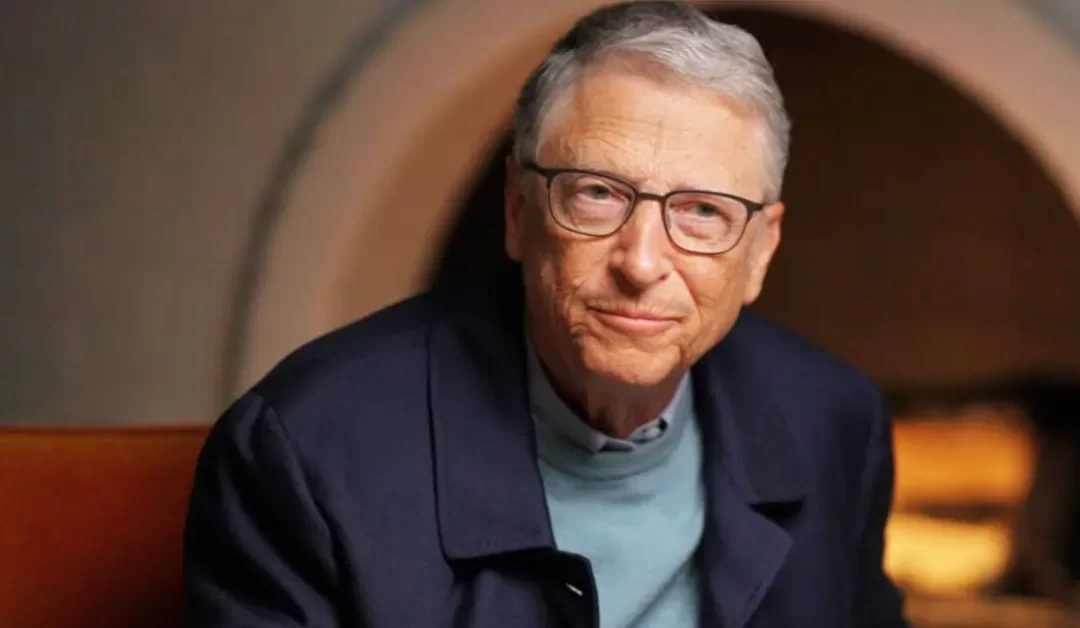Towards the end of our conversation, Bill Gates drops a striking figure—his charitable foundation has now spent over $100 billion in its mission to combat preventable diseases and alleviate poverty.
“I’ve given over $100 billion,” he says, “but I still have more to give.”
To put that into perspective, that amount is roughly the size of Bulgaria’s economy or the estimated cost of constructing the entire HS2 rail line in the UK. However, in today’s financial landscape, it’s also about the same as one year of Tesla’s global sales. Despite his vast philanthropic contributions, Gates remains among the world’s wealthiest individuals.
The Microsoft co-founder, alongside fellow billionaire Warren Buffett, continues to channel enormous resources into the Bill & Melinda Gates Foundation, which he originally established with his now ex-wife, Melinda French Gates. As the Foundation approaches its 25th anniversary in May, Gates exclusively shares this $100 billion milestone, a revelation that has drawn global attention in breaking news and economic circles.
A Lifetime of Giving
Gates attributes his philanthropic mindset to his upbringing, recalling how his mother frequently reminded him, “With wealth comes the responsibility to give it away.” That philosophy has driven him to donate around $60 billion of his personal fortune to the Foundation so far.
Interestingly, he admits that his daily life has not changed much despite giving away such an enormous sum. “I made no personal sacrifice. I didn’t order fewer hamburgers or watch fewer movies,” he says with a grin. Of course, he still enjoys luxuries like private jets and expansive homes, but he insists that wealth, for him, is a tool for progress rather than personal indulgence.
However, one question remains—how much of his fortune will he leave to his children?
Will Gates’ Children Be Left with Nothing?
When asked whether his three children will be left with little after he’s gone, Gates quickly reassures, “They will not.” He elaborates, explaining that while the percentage of his fortune they inherit may not seem enormous in relative terms, it will still be substantial in absolute value.
This sentiment is unsurprising given Gates’ deep-rooted belief in using wealth to benefit society rather than passing it down in excess. As one of the world’s most influential figures in economic news updates, his views on wealth redistribution and responsible inheritance continue to spark debate among business leaders and philanthropists.
A Childhood That Shaped a Billionaire
Born in Seattle, Gates grew up in a mid-century modern home, where his ambitious nature became evident early on. At just 13, he ranked among the best high school math students in a four-state regional competition, showcasing the analytical skills that would later define his career.
His sisters, Kristi and Libby, recall how their mother, Mary Gates, used an intercom system to wake them up by singing in the mornings. She also set all the clocks in their house eight minutes fast to ensure the family stayed punctual. Gates, however, often rebelled against these efforts.
His competitive streak was largely influenced by his grandmother, “Gami,” who taught him how to strategize and outthink opponents through card games. That drive eventually found a new outlet—computing.
A Young Coder’s Determination
By his teenage years, Gates was obsessed with coding. He and a few tech-savvy school friends gained access to a local company’s computer system in exchange for reporting software bugs. Determined to get extra hours of coding time, he would sneak out of his bedroom window at night without his parents knowing.
“Could you still do it now?” I ask.
Smiling, he unfastens the window latch and effortlessly climbs out. “It’s not that hard,” he laughs.
This anecdote is reminiscent of an old TV clip where a young Gates, asked whether he can jump over a chair from a standing position, does so effortlessly on live television. Even now, approaching 70, he retains that same energy and playfulness.
Gates and the Autism Spectrum
One of the more personal revelations in Gates’ new memoir, Source Code: My Beginnings, is his belief that, if he were growing up today, he would likely be diagnosed on the autism spectrum.
Reflecting on his childhood, he shares that he often hyper-focused on topics of interest, exhibited obsessive tendencies, and struggled with social interactions—traits commonly associated with autism spectrum disorder.
His sisters say they always knew he was different. Kristi, the eldest, recalls feeling protective of him. “He was not a normal kid… he would sit in his room and chew pencils down to the lead,” she says.
Libby, a therapist, says she wasn’t surprised when he disclosed his self-assessment. “The surprise was more his willingness to say, ‘This might be the case,'” she notes.
A Legacy Beyond Wealth
While Gates remains a pivotal figure in breaking news and economic news updates, his focus extends beyond financial success. His commitment to philanthropy, innovation, and reshaping the future of global health cements his legacy far beyond his wealth.
As for his children, they may not inherit billions, but they will undoubtedly inherit something far more valuable—a mindset shaped by responsibility, intelligence, and a drive to make the world a better place.































